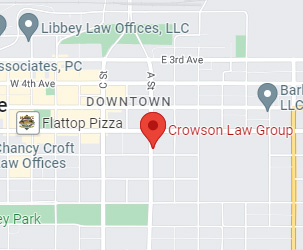Does a Consent Form Equals Informed Consent?

One area of contention with regards to medical malpractice cases is that of consent forms and informed consent. While consent forms are necessary to be signed by the patient, they may fail to inform the patient of some rare complication associated with a procedure or treatment. This article will discuss the interaction between consent forms and informed consent.
A consent form is an important document in many treatment options. A hospital may use forms that require a signature from the patient in order to make the patient aware of procedure and grants permission that the hospital carry out the treatment. It must be noted though that this form may lack the necessary information or clarification about the procedure needed by the patient. There are cases where patients find the form confusing and may need a better explanation about what will happen. Such forms may lack full details about what complications could arise in a procedure. Some doctors only use what the facility requires and then provide a verbal explanation of everything else.
The doctor performing a procedure usually explains the matter to the patient multiple times. The doctor will go through the steps of the procedure, what it will do to the patient’s body and how the person will experience life after the procedure is complete. Such information may also include possible complications even in the remote likelihood as well as side effects and dangers that may exist during the treatment. As the term shows informed consent requires the patient understand the information regarding a procedure, and after understanding such information the patient gives permission to proceed with the procedure. Different states have different laws in this regard however, some have stronger laws that require more information in such matters.
Generally, a consent form is not enough to prove informed consent and in addition it lacks the adequate information required to make an informed decision. Such information can only be provided when a professional fully explains the procedure. The doctor may need to detail specific issues that could occur and what percentage the facility expects the problem to occur. In addition, the doctor may need to clearly explain more complex and confusing details such as how side effects could appear in a certain percentage of patients. As such a consent form requires a more detailed explanation.
There are many instances where patients lack clear understanding about most medical procedures unless they have a background in medicine. Therefore, it is necessary for the doctor to explain certain aspects of the procedure and how the procedure should progress. While the consent form may give the general details, the verbal explanation from the medical staff members is how any confusion is no longer an issue. The form itself may result in confusion where technical wording is used. This is where a doctor or nurse steps in to explain what the person could expect and experience based on standard and rare circumstances.
Where a medical facility only has a person sign a consent form this could lead to a possible claim against the hospital or doctor. Speak to an Anchorage lawyer for more information on a potential personal injury claim.


